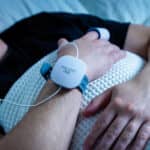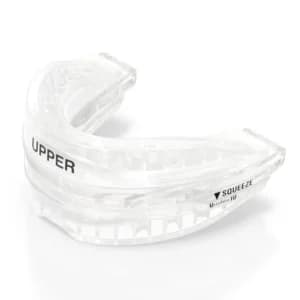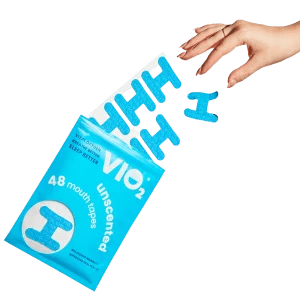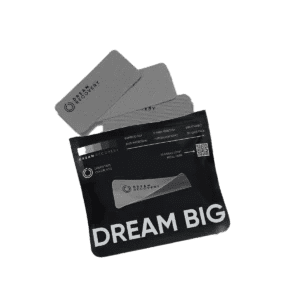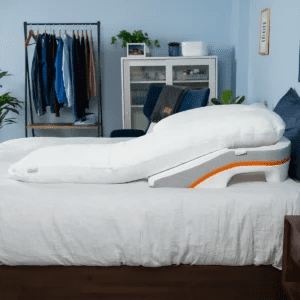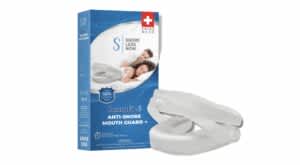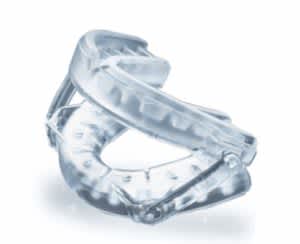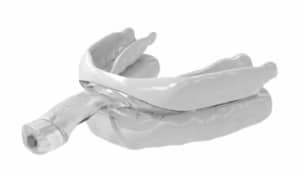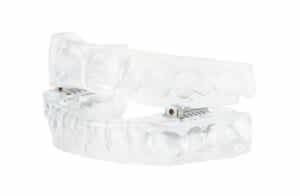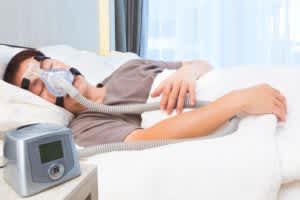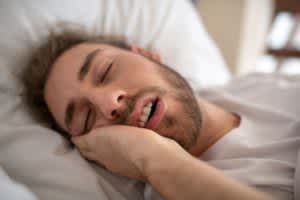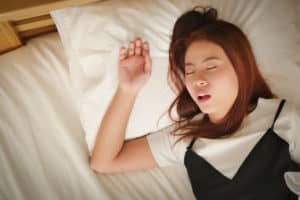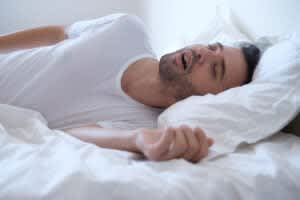When you buy through our links, we may earn a commission. Products or services may be offered by an affiliated entity. Learn more.
How to Stop Snoring
- Sleep changes: Many people can reduce or eliminate snoring by sleeping on their side or elevating their head.
- Lifestyle changes: Losing weight, quitting smoking, avoiding alcohol, sleeping on your side, and doing mouth exercises may improve snoring.
- Nasal or oral devices: Nasal strips and anti-snoring mouthpieces can help widen the airways and prevent snoring.
- Medical intervention: Ask your doctor about surgical options or positive airway pressure therapy if lifestyle changes don’t help.
Snoring keeping you up at night? You’re not alone. Experts believe approximately 44% of middle-aged men and 28% of middle-aged women snore regularly. And based on data from roughly 160,000 Sleep Foundation profiles, more than two-thirds of adults snore at least some of the time.
For most people, snoring is little more than an embarrassment or annoyance. For others, however, snoring can indicate a serious underlying health issue. Snoring can also impact a bed partner’s sleep quality. Below, we’ll discuss some tips that may help you stop snoring, along with more advanced options to treat potential underlying health conditions.
Snoring? It Could Be a Sign of Sleep Apnea
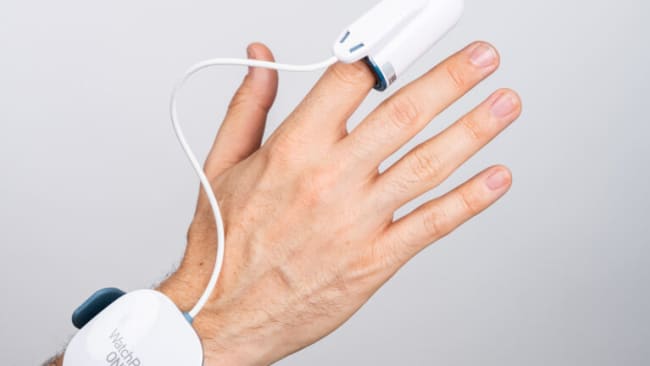
our partner at sleepdoctor.com
10% off Home Sleep Tests
Buy Now“Truly grateful for this home sleep test. Fair pricing and improved my sleep!”
Dawn G. – Verified Tester
Causes of Snoring
Snoring is the sound that results from air passing through your airway when it’s partially blocked .
During sleep, the muscles in your airway relax and the airway narrows. Forcing the same amount of air through a smaller space means the air has to flow faster. The slackened tissues at the top of your airway flutter against each other, causing the vibrations that we interpret as snoring.
Virtually all adults snore occasionally, but certain people with certain features may be more likely to snore on a regular basis. These features include:
- A lower jaw that’s smaller than usual
- A jaw that’s set further back (a receding chin)
- A deviated septum
- Larger soft tissues blocking the airways
- A chronically stuffy nose
Additionally, having obesity, being older or male, experiencing pregnancy or postmenopause, or using alcohol or sedatives, especially close to bedtime, may make you more likely to snore.
Tips for How to Stop Snoring
If you snore regularly, the first place to start is with lifestyle changes. Most of these snoring solutions are low-risk, and many of them are easy to implement. These snoring treatments aim to reduce obstructions and open up the airways while you sleep.
Sleep on Your Side
For some people, snoring may increase when back sleeping and improve when side sleeping . If you know that you’re snoring at night and you generally sleep on your back, try to sleep on your side instead.
There are numerous products designed to help you stay on your side, such as special pillows and posture alarms. You can also sew a tennis ball into the back of your pajama shirt to discourage rolling onto your back.
Treat Nasal Congestion
Your doctor may prescribe a steroid nasal spray to clear up nasal congestion. If it works to reduce snoring, you may benefit from using the spray long-term.
If the spray doesn’t work, your doctor may recommend trying a nasal dilator. Nasal dilators are devices that use tension to open the nasal passages . These small devices are available over-the-counter online and in most drug stores for relatively low prices.
A nasal strip, or external dilator, sticks to the outside of the nose with adhesive. As it tries to retain its shape, it pulls outward, lifting skin on the nose and opening the nasal passages. An internal nasal dilator operates similarly, with a winged design intended to widen the nasal passages from the inside.
Elevate Your Head
You may be able to open up your airway by sleeping with your head elevated. The best way to do this is with a wedge pillow or by raising the entire head of the bed using blocks under the bed frame.
Experts recommend against simply sleeping with a higher pillow, as this still allows your neck to bend, which promotes friction and allows snoring to continue.
Try Mouth Exercises
Mouth exercises, also known as myofunctional therapy or oropharyngeal exercises , involve repeatedly moving your tongue and parts of your upper airway in ways that strengthen muscles in the tongue, soft palate, and throat. Some research suggests these exercises might help reduce snoring volume and frequency.
Lose Weight
For people with overweight or obesity, experts recommend weight loss as one of the first and most important treatments to try for disrupted breathing during sleep.
While there’s little research available on weight loss for snoring, studies have found that weight loss is often helpful for reducing obstructive sleep apnea symptoms, so it follows that weight loss should also reduce snoring, since both conditions stem from the same cause.
Losing even just a small percentage of your overall weight may help with snoring . Talk to your doctor about the best ways to lose weight safely and gradually.
Quit Smoking
Smoking cigarettes is associated with increased snoring, and experts believe that quitting smoking may help reduce snoring.Having parents or caregivers who smoke may also make it more likely for children to snore and experience other sleep-related breathing problems, so it’s doubly important to quit smoking if you have little ones in the house.
Avoid Alcohol Before Bed
Alcohol relaxes the muscles in the upper airway and is thought to worsen breathing during sleep, especially for people who regularly snore .
More research is needed to see if cutting out your nightcap has a significant effect on snoring, but it doesn’t hurt to try and see if it works for you. Alcohol’s effect on snoring and sleep is dose-related, so if you tend to drink multiple drinks, start by cutting back. It can also help to have your last drink earlier in the day, to give your body time to metabolize the alcohol before going to bed.
When to See a Doctor
While snoring on its own is not typically considered harmful, snoring that doesn’t resolve with lifestyle changes may be due to an underlying medical issue. In this case, it’s best to seek professional medical help. Your doctor can perform further tests to determine if you would benefit from surgery or other interventions.
In particular, your doctor may want to evaluate your snoring to make sure it’s not tied to obstructive sleep apnea. This sleep disorder is marked by repeated lapses in breathing during the night, and may cause additional symptoms such as daytime sleepiness or morning headaches. Obstructive sleep apnea can have serious effects on heart health if it goes untreated.
Some research suggests snoring on its own may have long-term effects on the carotid artery, even if the person doesn’t have obstructive sleep apnea . More research is needed to confirm whether this requires a separate treatment plan.
Diagnostic Process
To diagnose snoring, your doctor will start by asking you and people in your household for details on how often you snore, how loud your snoring is, how long it tends to last, and whether it’s very bothersome to others around you . They’ll ask if you tend to get enough sleep, what sleep position you normally use, and whether you smoke, drink, or take any medication.
They’ll ask about symptoms that may indicate sleep apnea, including whether your bed partner has noticed you choking, gasping, or stopping breathing during your sleep. They may ask you to fill out some questionnaires or check to see if you have risk factors for sleep apnea, such as a large neck circumference or a history of heart conditions.
Your doctor will continue the exam by calculating your body mass index (BMI) to check for overweight or obesity, and perform a physical examination of your nose and mouth to check for structures that may be blocking your breathing. They may use a system called the Mallampati score to assess how “open” your throat appears to be based on the position of your tongue and other soft tissues.
If your symptoms and physical exam suggest you might have obstructive sleep apnea, they’ll refer you for a sleep study. By contrast, if your snoring isn’t causing other symptoms or affecting your sleep, you won’t currently need treatment, but your doctor may want to check in on you once in a while to make sure it hasn’t developed any further.
Imaging
Imaging refers to testing that produces images of your body parts or functions, such as X-rays or ultrasounds . Your doctor may request imaging tests if they believe your snoring is caused by unusual structures in the nose, mouth, or breathing passages.
Sleep Study
A sleep study, also known by its medical name polysomnography, uses multiple sensors to monitor metrics like your brain waves, breathing, blood oxygen levels, and heart rate while you sleep . While traditionally performed in a sleep lab, sleep studies can also be done at home in certain cases.
In the case of obstructive sleep apnea, a sleep study is looking for periods when you partially or completely stop breathing for at least 10 seconds. These events are called hypopneas and apneas, respectively. If the sensors detect more than five hypopneas or apneas per hour of sleep, this is supportive of an obstructive sleep apnea diagnosis. A sleep specialist can talk to you about next steps if you require treatment for obstructive sleep apnea.
Medical Snoring Treatments
If lifestyle changes haven’t worked and your snoring is causing distress to you or your household, you may want to escalate to the next step. Options include wearing a special mouthpiece, using positive air pressure therapy, or surgery.
Anti-Snoring Mouthpiece
Anti-snoring mouthpieces treat sleep-related breathing problems by opening up the airway. The two most common types are mandibular advancement devices (MAD) and tongue-retaining devices (TRD). While more commonly used for obstructive sleep apnea, the principle of opening up the airway means they also work to help against snoring.
Mandibular advancement devices are the most common type of anti-snoring mouthguard, and research suggests they’re effective at reducing snoring. These oral appliances are molded to fit your teeth, then adjusted so that they move your lower jaw forward. This minor jaw realignment helps open up the throat and reduce snoring. Mandibular advancement devices may be sold over-the-counter, but it’s better to get one professionally fit by a qualified dentist if possible.
A tongue-retaining device also fits between the teeth. However, instead of adjusting the lower jaw, it holds the tongue in place . A small part of the mouthpiece uses suction to keep the tongue from falling back into the throat.
There are some minor side effects to anti-snoring mouthpieces, such as jaw discomfort, tooth pain, drooling, and the possibility that your teeth may shift. Ongoing checkups with your doctor or dentist can help make sure you don’t experience any serious dental effects.
Continuous Positive Airway Pressure (CPAP) Therapy
Continuous positive airway pressure (CPAP) therapy involves a machine that blows pressurized air through a tube and mask into your nose and/or mouth. The air pressure helps keep your airways open and effectively prevents snoring.
CPAP therapy is a first-line treatment for obstructive sleep apnea, but it’s less commonly used to treat snoring, because this use isn’t typically covered by insurance. Though it works well, CPAP therapy can also take some getting used to, and many people feel this adjustment period isn’t worth it if they don’t have full-blown sleep apnea with the associated health risks.
Surgical Options
Snoring sometimes results from anatomical issues, which medical professionals may be able to resolve through surgery.
There’s little quality research to back up the effectiveness of surgery for snoring, and the research that does exist suggests the positive effects may not last forever. Because of this, it’s usually considered a secondary option after lifestyle changes have failed to work. Most studies on airway surgery have been performed in the context of obstructive sleep apnea, although in theory, the surgeries should work to correct simple snoring as well.
Laser-Assisted Uvulopalatoplasty
In laser-assisted uvulopalatoplasty, a surgeon uses a laser to remove extra tissues in the soft palate and widen the airway. This surgery has a long history of being used as a treatment for snoring and obstructive sleep apnea. Some doctors still consider the surgery to be beneficial, though it’s become controversial in recent years due to a high occurrence of negative side effects. Benefits may also wear off after a few years.
Surgeons now offer less invasive surgery options such as uvuloplasty (which removes the bell-shaped tissue at the back of the mouth), radiofrequency ablation, or injection snoreplasty, designed to stiffen tissues in the soft palate. More research is needed to say whether these operations are effective.
Hypoglossal Nerve Stimulation
Hypoglossal nerve stimulation is done with an implanted device . When you breathe in, the device sends an electrical impulse to the hypoglossal nerve, which is the nerve that controls the tongue. The electrical impulse helps widen the airway by activating muscles in the tongue and upper airway.
Hypoglossal nerve stimulation is generally only considered for people with moderate to severe sleep apnea. It’s not recommended for simple snoring or mild sleep apnea.
Palatal Implants
Palatal implants are a minimally invasive surgery option in which braided polyester filaments are inserted into the soft palate to stiffen the tissues . There’s not much research available, but some studies indicate palatal implants could be effective at reducing snoring at first, though the effects may not last forever.
Somnoplasty
Instead of lasers and implants, somnoplasty uses radio waves to remove tissue from the soft palate. Otherwise known as radiofrequency palate surgery, somnoplasty tends to be less painful than uvulopalatoplasty. However, like other types of airway surgery, though fairly effective in the short term, its benefits may not persist in the long term.

Still have questions? Ask our community!
Join our Sleep Care Community — a trusted hub of sleep health professionals, product specialists, and people just like you. Whether you need expert sleep advice for your insomnia or you’re searching for the perfect mattress, we’ve got you covered. Get personalized guidance from the experts who know sleep best.
References
16 Sources
-
Rowley, J. A. (2019). Snoring in adults. In A. F. Eichler (Ed.), UpToDate.
https://www.uptodate.com/contents/snoring-in-adults -
Schwab, R.J. (2020, June). Merck Manual Professional Version: Snoring.
https://www.merckmanuals.com/professional/neurologic-disorders/sleep-and-wakefulness-disorders/snoring -
Rowley, J. (2023, January 6). Snoring in adults. In M. Badr (Ed.). UpToDate.
https://www.uptodate.com/contents/snoring-in-adults -
Chang, J. L., Goldberg, A. N., Alt, J. A., Mohammed, A., Ashbrook, L., Auckley, D., Ayappa, I., Bakhtiar, H., Barrera, J. E., Bartley, B. L., Billings, M. E., Boon, M. S., Bosschieter, P., Braverman, I., Brodie, K., Cabrera-Muffly, C., Caesar, R., Cahali, M. B., Cai, Y., Cao, M., … Rosen, I. M. (2023). International Consensus Statement on Obstructive Sleep Apnea. International forum of allergy & rhinology, 13(7), 1061–1482.
https://doi.org/10.1002/alr.23079 -
Verma RK, Johnson J JR, Goyal M, Banumathy N, Goswami U, Panda NK. Oropharyngeal exercises in the treatment of obstructive sleep apnoea: our experience. Sleep Breath. 2016;20(4):1193-1201. doi:10.1007/s11325-016-1332-1
https://pubmed.ncbi.nlm.nih.gov/26993338/ -
Stuck, B. A., & Hofauer, B. (2019). The diagnosis and treatment of snoring in adults. Deutsches Aerzteblatt Online, 116(48), 817–824.
https://pubmed.ncbi.nlm.nih.gov/31888795/ -
Yaremchuk, K. (2020). Why and when to treat snoring. Otolaryngologic Clinics of North America, 53(3), 351–365.
https://pubmed.ncbi.nlm.nih.gov/32336469/ -
Katila, M., Saarenpää-Heikkilä, O., Saha, M. T., Vuorela, N., & Paavonen, E. J. (2019). Parental reports showed that snoring in infants at three and eight months associated with snoring parents and smoking mothers. Acta Paediatrica (Oslo, Norway : 1992), 108(9), 1686–1694.
https://pubmed.ncbi.nlm.nih.gov/30791132/ -
Kolla, B. P., Foroughi, M., Saeidifard, F., Chakravorty, S., Wang, Z., & Mansukhani, M. P. (2018). The impact of alcohol on breathing parameters during sleep: A systematic review and meta-analysis. Sleep Medicine Reviews, 42, 59–67.
https://pubmed.ncbi.nlm.nih.gov/30017492/ -
Lee SA, Amis TC, Byth K, et al. Heavy snoring as a cause of carotid artery atherosclerosis. Sleep. 2008;31(9):1207-1213.
https://pmc.ncbi.nlm.nih.gov/articles/PMC2542975/ -
MedlinePlus. Diagnostic Imaging. Medlineplus.gov. Published 2019.
https://medlineplus.gov/diagnosticimaging.html -
A.D.A.M. Medical Encyclopedia. (2020, January 29). Polysomnography. MedlinePlus.
https://medlineplus.gov/ency/article/003932.htm -
Lazard, D. S., Blumen, M., Lévy, P., Chauvin, P., Fragny, D., Buchet, I., & Chabolle, F. (2009). The tongue-retaining device: Efficacy and side effects in obstructive sleep apnea syndrome. Journal of Clinical Sleep Medicine, 5(5), 431–438.
https://pubmed.ncbi.nlm.nih.gov/19961027/ -
Wischhusen, J., Qureshi, U., & Camacho, M. (2019). Laser-assisted uvulopalatoplasty (LAUP) complications and side effects: a systematic review. Nature and Science of Sleep, 11, 59–67.
https://pubmed.ncbi.nlm.nih.gov/31213936/ -
Suurna, M. (2022, October 6). Hypoglossal nerve stimulation for adult patients with obstructive sleep apnea. In N. Collop (Ed.). UpToDate.
https://www.uptodate.com/contents/hypoglossal-nerve-stimulation-for-adult-patients-with-obstructive-sleep-apnea -
Lee, L. A., Yu, J. F., Lo, Y. L., Chen, N. H., Fang, T. J., Huang, C. G., Cheng, W. N., & Li, H. Y. (2014). Comparative effects of snoring sound between two minimally invasive surgeries in the treatment of snoring: A randomized controlled trial. PLoS ONE, 9(5), e97186.
https://pubmed.ncbi.nlm.nih.gov/24816691/



